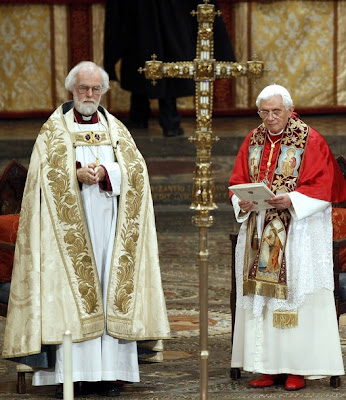An example of Communicatio in sacris permitted
to those who lived under tyranny in the Ottoman Empire
is the Instruction of 6 August, 1764,
from the
Congregation of the Propaganda of the Faith.
The Instruction authorised the Apostolic Vicar of Aleppo,
in Northern Syria,
to allow the faithful, if in danger of persecution,
to have their children baptized by schismatic or heretical priests,
to marry before a non-Catholic minister,
and to have him bury their dead.
The reason for this was that the Ottoman Empire
recognised only certain Non-Catholic communities of Christians.
There was no protection for a minority of newly converted Catholics.
If they were not to be forced to become Muslims
they had to have recognised certificates of Baptism and Marriage.
Valid death certificates were also issued by the recognised religious leaders.
Therefore, these isolated Catholics were permitted
Baptism, Marriage and Burial by Non-Catholics.
recognised only certain Non-Catholic communities of Christians.
There was no protection for a minority of newly converted Catholics.
If they were not to be forced to become Muslims
they had to have recognised certificates of Baptism and Marriage.
Valid death certificates were also issued by the recognised religious leaders.
Therefore, these isolated Catholics were permitted
Baptism, Marriage and Burial by Non-Catholics.
(Source: R. De Martinis, luris Pontificii de Propaganda Fide, Pars 11 (Rome, 1909), p. 342, n. 615.)














